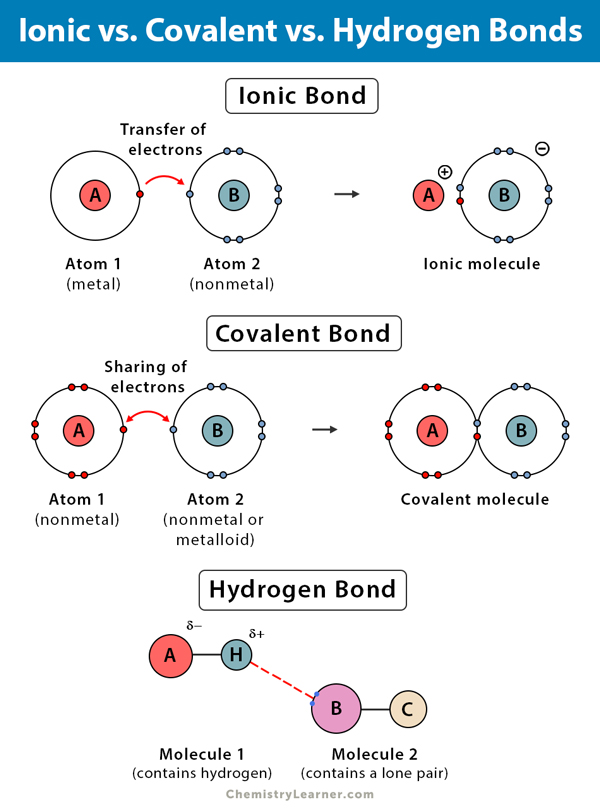Why Are Hydrogen Bonds Weaker Than Covalent
Strong and weak bond overview Nonpolar bonds electronegativity hydrogen electronegative fluorine nitrogen sylvia freeman Solved question 1 1 pts hydrogen bonds are weaker than
Solved Question 1 1 pts Hydrogen bonds are weaker than | Chegg.com
Weak chemical bonds Chemical bonds weak hydrogen Hydrogen bonding
Hydrogen covalent bonds potential energy conventional localised
When does a hydrogen bond become a covalent bond?Covalent bonds bonding hydrogen atoms compounds occur Covalent vs hydrogen bond- definition, 11 key differences, examplesPolar vs. nonpolar bonds — overview & examples.
Identifying differences between hydrogen bonding and covalent bondingWhy do covalent bonds have a low melting point? Covalent bonds bond melting electrons socratic hydrogen ionicHydrogen bonding.

Bonds weak strong chemical versus
Hydrogen covalent bonds differences biorenderWater hydrogen bonds properties molecules form why bonding bond molecule between do draw connected ppt powerpoint presentation another Covalent bonds: a hydrogen exampleHydrogen bonds bonding molecule charges specific bond molecules expii bonville poles.
Hydrogen bonding molecules weaker dipoleWeak der bonds bond waals van strong stronger covalent molecules ionic than atoms so other do gif very overview help Human&animal anatomy and physiology diagrams: hydrogen bondsHydrogen bonds — overview & examples.

Bonds weak hydrogen
Bonds hydrogen pcr chegg pts covalent strands separatedHydrogen bond ionic covalent bonds Hydrogen bond: definition, types, and examplesHydrogen bonds bonding bond covalent water human molecules diagrams hexagonal notes between snowflakes why anatomy physiology chemical gif properties ice.
Hydrogen bonding hf bond diagram than der van stronger ionic but waal adichemistry general followingHydrogen covalent bonding Hydrogen bonding types structure life nature important why water itsHydrogen covalent bonds example bond formation dummies.

Strong versus weak bonds
Hydrogen bonding: what is hydrogen bonding and its types? .
.








